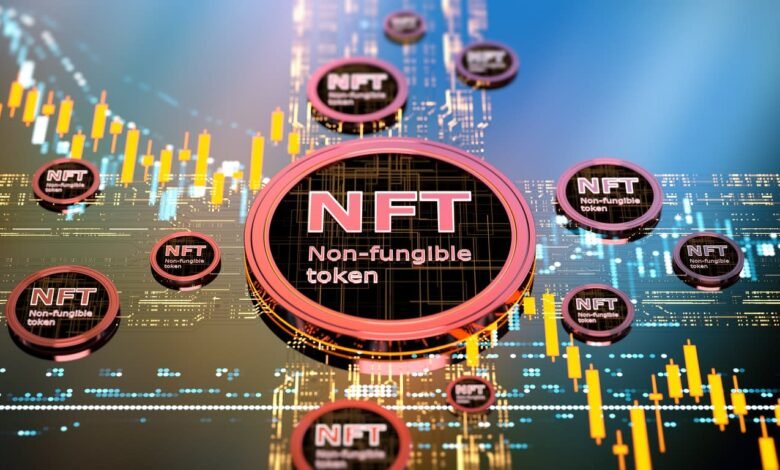The Future is Here: NFTs are Transforming Science and Research in 2023

As we move towards a digital era, technology continues to revolutionize various industries, and the world of science and research is no exception. One of the latest advancements that has gained significant attention in recent years is Non-Fungible Tokens (NFTs). NFTs are digital assets that use blockchain technology to verify ownership and uniqueness, making them ideal for digital art, music, and even virtual real estate. However, NFTs are not limited to just the world of art and entertainment. In this article, we will explore how NFTs are transforming science and research, and the potential they hold for the future.
Understanding NFTs
Before delving into how NFTs are transforming science and research, it’s crucial to understand what NFTs are and how they work. NFTs are unique digital assets that are created using blockchain technology, which is a decentralized and transparent digital ledger. Each NFT has a unique digital signature that verifies its ownership and provenance, making it impossible to duplicate or counterfeit.
Unlike cryptocurrencies like Bitcoin or Ethereum, which are fungible and can be exchanged for one another, NFTs are non-fungible, meaning each one is unique and cannot be replaced by another. This uniqueness makes NFTs ideal for digital assets that require proof of ownership, authenticity, and scarcity, such as digital art, music, videos, and even virtual real estate.
NFTs in Science and Research
NFTs are increasingly being recognized for their potential to transform the field of science and research. Here are some ways in which NFTs are making an impact:
- Authenticating Research Data: In the field of scientific research, data authenticity and integrity are of utmost importance. NFTs can be used to verify the authenticity and ownership of research data, ensuring that the data is not tampered with or misrepresented. This can help establish trust and credibility in research findings, as NFTs provide a transparent and immutable record of the data’s provenance.
- Protecting Intellectual Property: Intellectual property (IP) is a crucial aspect of scientific research, and NFTs can be used to protect IP rights. Researchers can create NFTs for their research findings, publications, or inventions, and use them as digital certificates of ownership. This can help prevent plagiarism, copyright infringement, and unauthorized use of research findings, ensuring that researchers are credited and rewarded for their work.
- Enabling Crowdfunding and Collaboration: NFTs can also be used to raise funds for scientific research projects through crowdfunding. Researchers can create NFTs representing their research projects and offer them for sale to investors or supporters. These NFTs can be traded on online marketplaces, allowing researchers to raise funds and collaborate with other researchers from around the world. This can foster innovation and accelerate the pace of scientific discovery.
- Preserving Scientific Data: NFTs can also be used to preserve and archive scientific data for future generations. Researchers can create NFTs for their datasets, algorithms, or simulations, and store them on blockchain networks, ensuring that the data remains accessible, transparent, and secure over time. This can help prevent data loss, ensure reproducibility of research findings, and facilitate knowledge sharing among researchers.
- Enhancing Peer Review and Recognition: NFTs can also revolutionize the traditional peer review process in scientific publishing. Researchers can create NFTs for their research papers, and use them as proof of ownership and authenticity during the peer review process. This can help prevent plagiarism, ensure transparency in the review process, and recognize researchers for their contributions through digital certificates or royalties from NFT sales.
NFTs as a Tool for Data Sharing:
Another way NFTs are transforming science and research is through data sharing. In many cases, researchers encounter challenges in accessing and sharing data due to issues such as copyright restrictions, data privacy concerns, and proprietary limitations. However, NFTs can provide a solution by allowing researchers to create NFTs representing their datasets and sharing them with other researchers. These NFTs can serve as digital licenses or permissions, granting access to the data while ensuring that the data is used appropriately and attributed to the original creators. This can facilitate collaboration, foster innovation, and accelerate scientific progress by removing barriers to data sharing.
Benefits of NFTs in Science and Research
The use of NFTs in science and research offers several benefits, including:
- Enhanced Authenticity and Ownership: NFTs provide a transparent and immutable record of ownership and authenticity, ensuring that research data, publications, and inventions can be verified and protected. This can enhance trust and credibility in research findings, prevent plagiarism, and enable researchers to assert their ownership rights.
- Increased Transparency and Security: NFTs are stored on blockchain networks, which are decentralized, transparent, and secure. This ensures that research data, publications, and other digital assets are tamper-proof and resistant to censorship, providing a secure and transparent environment for scientific research.
- Improved Collaboration and Innovation: NFTs can enable crowdfunding, data sharing, and collaboration among researchers from around the world. This can foster innovation, accelerate the pace of scientific discovery, and facilitate cross-disciplinary collaborations, leading to breakthroughs and advancements in various fields of science and research.
- Enhanced Recognition and Rewards: NFTs can provide a new way for researchers to gain recognition and rewards for their work. By creating NFTs for their research findings, publications, or inventions, researchers can establish their ownership and receive royalties or payments from NFT sales. This can incentivize researchers, promote healthy competition, and encourage further research and innovation.
Challenges and Limitations of NFTs in Science and Research
While NFTs offer significant potential in transforming science and research, there are also challenges and limitations to consider. Some of the challenges include:
- Lack of Standardization: The NFT ecosystem is still relatively new and lacks standardization in terms of governance, regulations, and technical standards. This can result in challenges related to interoperability, compatibility, and consistency, which may hinder the widespread adoption of NFTs in science and research.
- Potential for Misuse: As with any digital technology, NFTs can also be misused, such as for plagiarism, fraud, or misrepresentation of research findings. It’s crucial to ensure that NFTs are used ethically, responsibly, and in compliance with relevant laws, regulations, and ethical guidelines.
- Accessibility and Inclusivity: The use of NFTs may also raise concerns about accessibility and inclusivity, as not all researchers may have the resources or technical expertise to create, trade, or access NFTs. It’s important to ensure that the use of NFTs in science and research does not create additional barriers or inequalities, and that it benefits a wide range of stakeholders.
Read more:Beginner’s Guide to NFT Avatars: Is Owning One Beneficial?
Conclusion
In conclusion, NFTs are revolutionizing the field of science and research by providing new ways to authenticate data, protect intellectual property, enable crowdfunding and collaboration, preserve scientific data, enhance peer review, and facilitate data sharing. NFTs offer several benefits, including enhanced authenticity, transparency, security, collaboration, innovation, and recognition. However, challenges and limitations related to standardization, potential for misuse, and accessibility need to be addressed to ensure responsible and ethical use of NFTs in science and research.











